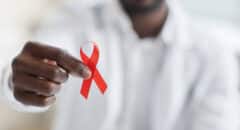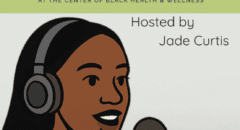 (BlackDoctor.org) — Everyone knows that athletes must plan and time their meals and snacks very carefully to reach their performance goals. But what about the rest of us? You try to squeeze in 30-60 minutes of exercise most days of the week. Do you have to be careful about what you eat before and after your workouts, too?
(BlackDoctor.org) — Everyone knows that athletes must plan and time their meals and snacks very carefully to reach their performance goals. But what about the rest of us? You try to squeeze in 30-60 minutes of exercise most days of the week. Do you have to be careful about what you eat before and after your workouts, too?
Understanding Pre-Workout and Post-Workout Nutrition
Pre and post-workout nutrition is critical, because it allows the body to have the necessary energy to exercise effectively, as well as the right macro-nutrients and energy after exercise to help with recovery. As a rule of thumb, you want to try to fill your tank up both before and after working out. How much you need to eat and what you should eat before exercise will have a lot to do with:
- The time of day
- When you last ate
- How your body responds to pre-workout food.
What To Eat Before Exercise
In general, you’ll want to eat a light meal about 60-90 minutes before exercise. The ideal meal will have a good balance of complex carbohydrates and some lean protein. A little healthy fat is fine, but you don’t want to overdo it. So a good pre-workout meal might be an apple with some natural peanut butter or a light sandwich made with 100% whole wheat bread and some turkey or chicken breast.
The same rule basically applies if you work out in the morning, although your choice of foods may be different.
A good pre-exercise breakfast would be a bowl of oatmeal with some fresh fruit and maybe a little honey and a couple of scrambled egg whites. If you are pressed for time, a bowl of 100% whole grain cereal with skim milk and some fruit will do the trick, or you can opt for a smoothie made with skim milk, frozen or fresh fruit and maybe a scoop of whey or soy protein powder.
In either case, you should be aiming to come in at around 300-350 calories. If you go much beyond that, you may feel too full and this can make exercising uncomfortable.
What To Eat After A Workout
In terms of post-workout nutrition, you’ll want another small, balanced meal as soon as possible after working out, regardless of whether you eat a pre-workout meal or snack. For your post-workout meal, the best things to eat after a workout are foods that are low in fat, high in lean protein and have a mix of simple and complex carbs. The choice of carb is yours — there are some good reasons for eating a more quickly digested carbohydrate (like white rice or Rice chex) with some protein right after you workout, but this isn’t required.
The main thing here is to eat something after you workout that has lean protein and some healthy sources of carbs. That could be scrambled egg whites, a bowl of whole grain cereal with skim milk or low-fat yogurt, or a whey or soy shake. While it’s not ideal, even a higher-protein nutrition or sports bar right after you workout or exercise is better than nothing.
Timing Your Pre Workout and Post Exercise Meals
As mentioned before, timing of meals around exercise is critical. If you are eating too close to your actual workout, this can leave you feeling bloated or sluggish. A good practice is to give yourself at least 60 minutes between eating and exercising. That gives your body plenty of time to get on with the digestion process.
Choosing complex carbohydrates keeps your blood sugar levels stable and can help you sustain your energy during exercise, so you should always be including them in your pre-workout meal. Also, the type of exercise and intensity of that exercise can determine the timing of meals.
Intense exercise and activity can cause disruptions with digestion. When you exercise, the body slows digestion to conserve energy, re-relocating it to your muscles to power your workout and activity. This can sometimes cause stomach upset — especially if you eat to close to your workout.
The resulting indigestion, bloating and “gassiness” is often more prevalent among runners or people performing high-intensity cardio right after eating than with with weight trainees or people performing lower-intensity cardio. Some people have no issues, while others find that they need to eat far advance of their workout to avoid this.
Generally, people have less issues with handling post-workout meals. In fact, many people are plenty hungry 30 minutes after a good workout. So they welcome the food.
Other Considerations For Eating Before Exercise
Finally, when and how much you eat before exercise (or whether you eat at all) needs to be examined in terms of your own personal preferences and experiences.
Some people simply find eating before exercise difficult. This seems to be especially common for people who like to work out first thing in the morning. Often you don’t have the luxury of eating 60 minutes before your workout if you do it early in the morning. Also, some people have problems eating breakfast immediately after waking. Both of these things can impact whether or not you eat before an a.m. workout or not.
If you’re able to eat something before exercising, you should still try to do it. Even something simple like some fruit or a nutrition bar can help give you a boost of energy without weighting you down or negatively impacting your performance. At the end of the day, it comes down to experimenting to find what works best for you.
Try both approaches and see what impact eating or not eating before your workout has on your energy levels. Play around with the types of foods you eat, how much of them you eat and their timing until you find something that fits. Usually you can discover the right combination for you with a little awareness and practice.
body { background: #FFF; }








